How to Use ChatGPT for Writing a Personal Statement
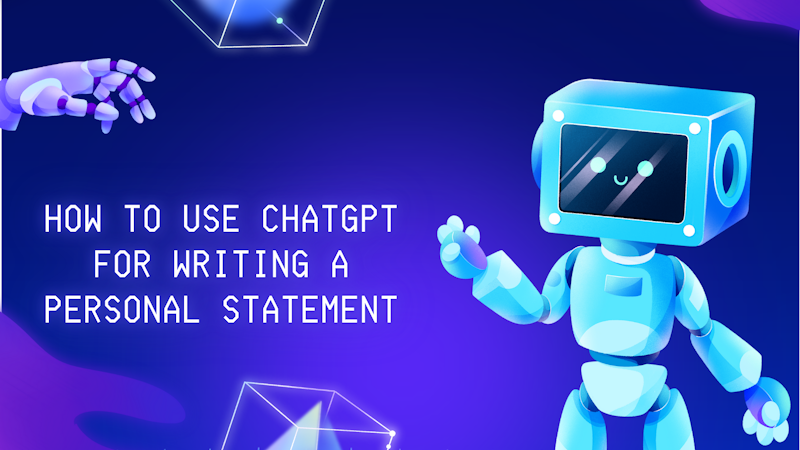
For the past two years since AI tools like ChatGPT became available, concerns have arisen about their potential to be unethical, make students less capable, and facilitate cheating.
However, universities are now recognizing that AI tools can be beneficial when used properly. It’s important to use AI ethically to enhance efficiency and overcome barriers to reaching your full potential.
According to Elliot Newstead, Head of UK Student Recruitment and Outreach at the University of Leicester, AI tools like ChatGPT can be beneficial for students applying to university if used correctly.
In the following section, we’ll explore how to use ChatGPT ethically to assist with writing your personal statement.
Using ChatGPT for Brainstorming
The first way to use ChatGPT is for brainstorming ideas.
When writing a personal statement, you need to create a document that showcases why you are a good fit for a particular degree. It’s essentially a CV for university admissions, highlighting your interests, passion, credentials, and future goals related to the degree.
Start by brainstorming career ideas.
For example, if you’re applying for a psychology degree but are unsure about future career paths, ask ChatGPT:
“What are some career paths that I can pursue with a degree in Psychology?”
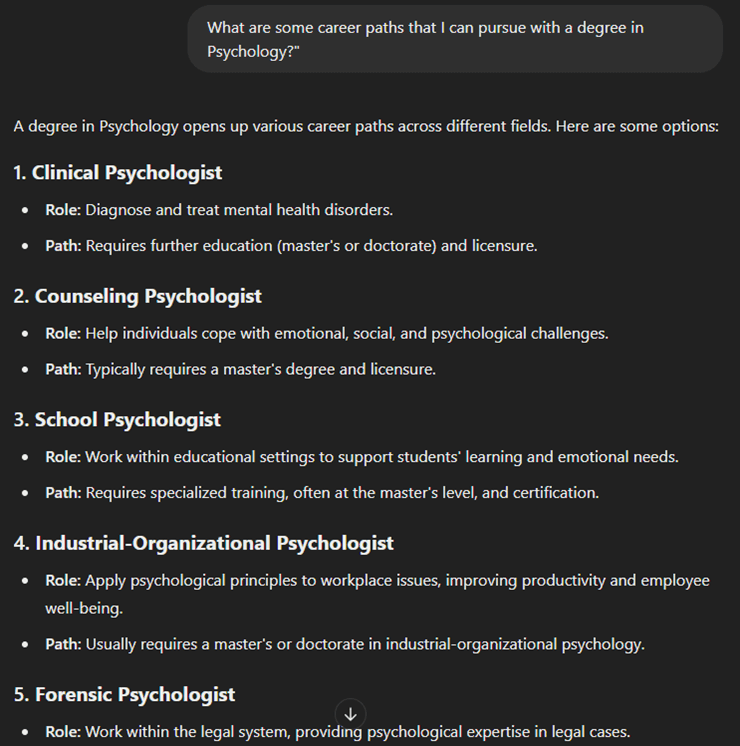
ChatGPT can provide various options such as clinical psychologist, counseling psychologist, health psychologist, school psychologist, social worker and researcher. You can then choose a couple of these paths to focus on in your personal statement.
Another useful feature is to generate a list of key achievements or skills needed for your chosen degree.
For example, if you’re applying for a business management program, ask ChatGPT:
“List my key achievements and experiences relevant to a business administration program.“
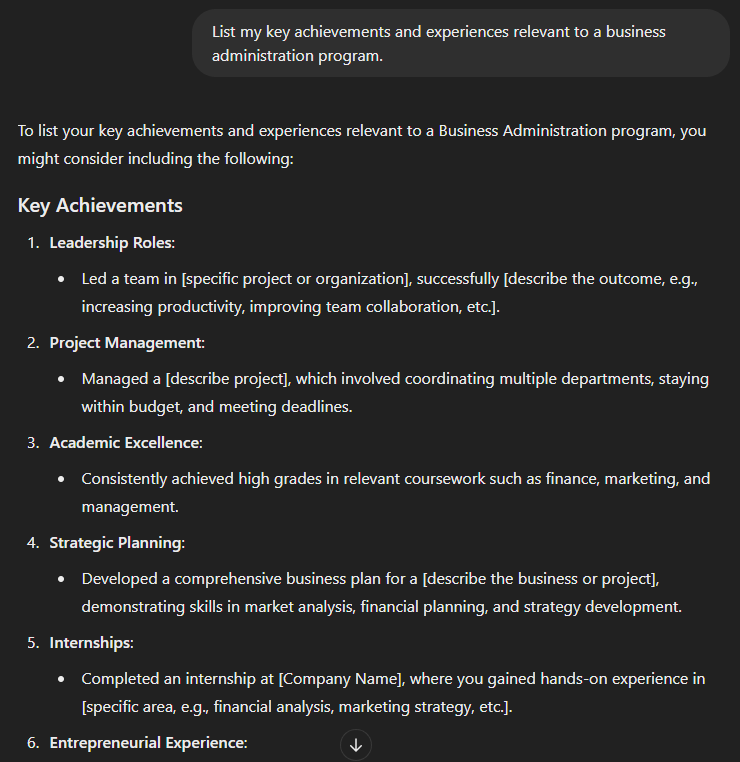
It might suggest skills like leadership, project management, and strategic planning. You could then consider gaining relevant experience, like starting a podcast, to strengthen your application.
Gather Information
An essential part of your personal statement is discussing the subject in depth. Include information that interests you and is relevant, showing your passion and willingness to learn.
For example, if you’re applying for a degree in neuroscience or psychology and have a strong interest in dementia research, you might want to mention a new method, finding, or drug that has caught your attention.
You can use a platform called R Discovery, which has a tool called Ask R Discovery. It searches through the literature and provides you with relevant research findings.
You can ask a question like:
“What is a recent research finding in dementia research?”
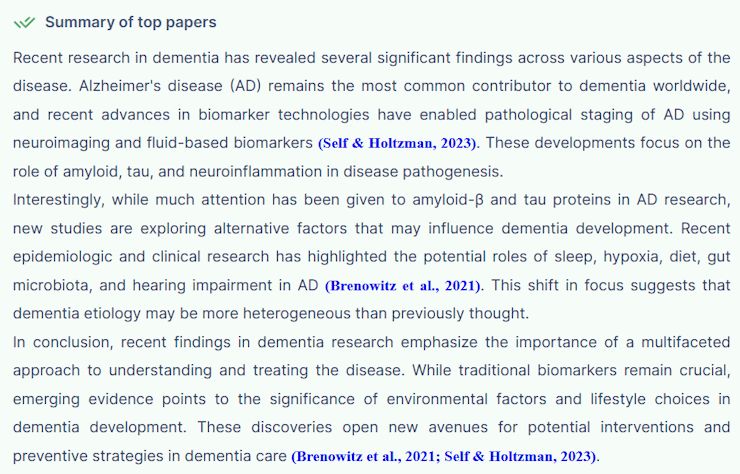
The AI tool will generate a summary and provide literature for further exploration. This can be a great topic to include in your personal statement to demonstrate your genuine interest in the subject to the admissions tutor.
Structuring Your Statement
The next way to use ChatGPT is to structure and generate an outline for your personal statement.
For instance, ask it:
“Create an outline for a personal statement for a computer science degree.”
Include details about your background and experience for a more tailored outline.
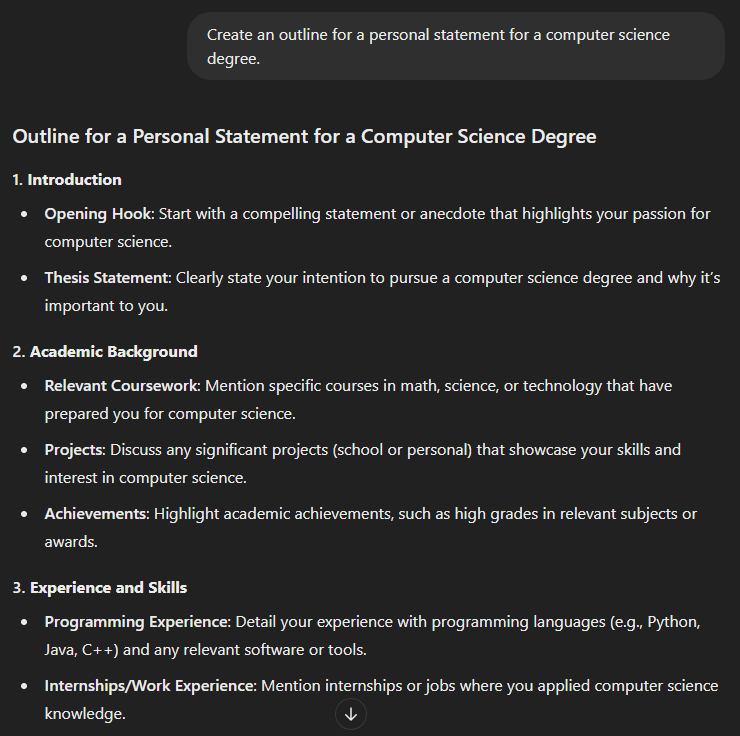
Typically, a personal statement should start with a compelling hook, followed by your academic background, achievements, relevant coursework, practical experience, skills, career goals, and a strong conclusion.
You can copy this outline into your document and start writing. This method saves time while ensuring your statement remains original and ethically written.
Writing the Content
ChatGPT can also assist with writing the content of your personal statement.
For example, you might ask it:
“Explain in the first person how my internship at a tech company prepared me for a computer science degree.”
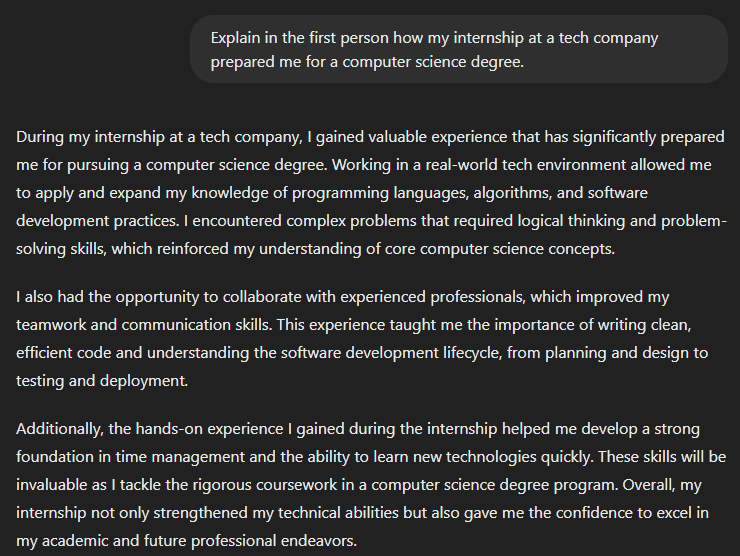
It can help draft strong paragraphs by relating your experience to the course you’re applying for, discussing practical applications, teamwork, and professional development.
Refining and Editing
Once you have a draft, use ChatGPT for refining and editing. For example, you can ask ChatGPT to paraphrase a sentence or simplify a paragraph. It can also help with critical discussion points, such as presenting challenges or opposing arguments related to your experiences.
ChatGPT can also assist with adding recent research references or discovering relevant literature to include in your statement. This can be particularly useful if you want to demonstrate a deeper understanding of your field.
I hope you find this information useful. If so, feel free to share it on your social media and let me know in the comments.

Comments (0)